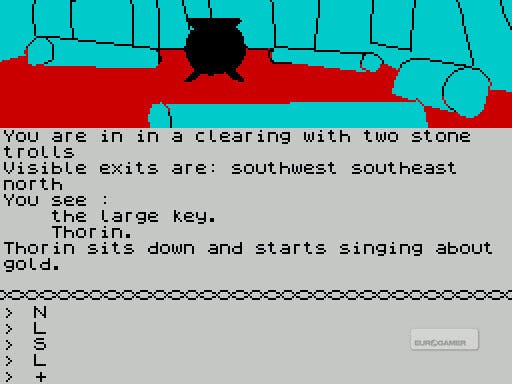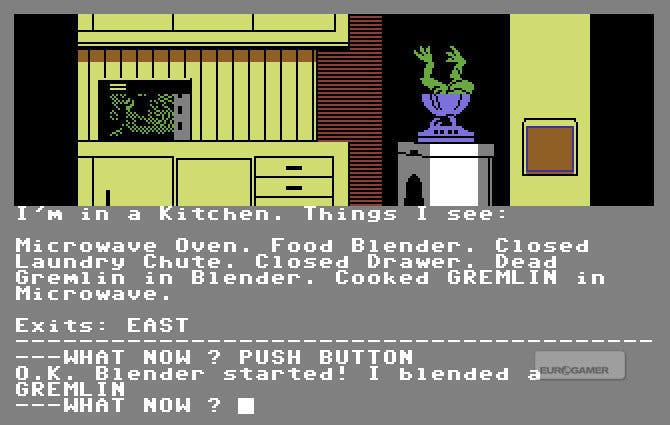Retrospective: Text Adventures
Interactive Friction.
With no online FAQs to read or helplines to phone, it was pretty much down to you to figure it all out. If you were horribly stuck in a certain game there was always a chance that one of the magazines like C&VG or Crash might print the solution. Sometimes they'd even share the name and address of an obliging reader who had completed the game so you could mail them for help.
I regularly called on the services of these big-hearted adventurers. I'd post off my questions and then endure an agonising wait for my self-addressed envelope to return. I sometimes even included sweets with my questions in the hope that the bribe would hasten the reply.
The thing was, whether you managed to work it out yourself or had a little help, there was no better feeling that breaking through those brick walls. You'd enter the solution and rather than the usual replies of "I don't understand" or "I can't do that", fresh new text would flood onto the screen and the game would joyously open up. Another brick wall would be just around the corner - a stinking bog or giant spider, probably - but those brief, punch-the-air moments made it all worthwhile.

The more I played text adventures, the more I enjoyed them. I began to understand the mechanics behind the puzzles and recognise all of the usual clichés. If there was an old gnarled tree you climbed it. If there was suspicious-looking sand on the floor you dug it. If you found a dead person you searched their pockets. If an NPC walked off you'd follow them. If you entered a church you'd pray. If you found yourself in one of those dreaded mazes with "exits in all directions", you made a bloody map.
Sometimes examining an object wasn't sufficient - you need to examine it 'carefully'. Sometimes the only way to move forward was to actually 'wait'.
It also helped that the games themselves became more professional, with the output of British companies like Level 9, Delta 4 and Magnetic Scrolls coming to rival that of US giant Infocom. Parsers were updated to understand a wider range of commands and the overall presentation was greatly improved. New features like 'ramsave', which let you instantly store your progress in memory, removed the hassle of loading saves from tape or disk.

But despite all of the fantastic commercial releases, one of the best things about text adventures is that anyone could write one. You could use one of the authoring packages like The Quill or The Graphic Adventure Creator, or even stick something together in the version of Basic that came with your computer.
You didn't need to understand sprite routines or machine code. Just an active imagination and a competent command of the English language would do.
I dabbled and finished a few of my own adventures. One was a parody of The Omen called Oh Man! in which you had to avoid all manner of overblown death scenarios. I remember it being childish and pretty terrible, but for the sake of the poor people who actually played it, I made sure of one thing - there was a suitably heartfelt response to each and every swear word.
